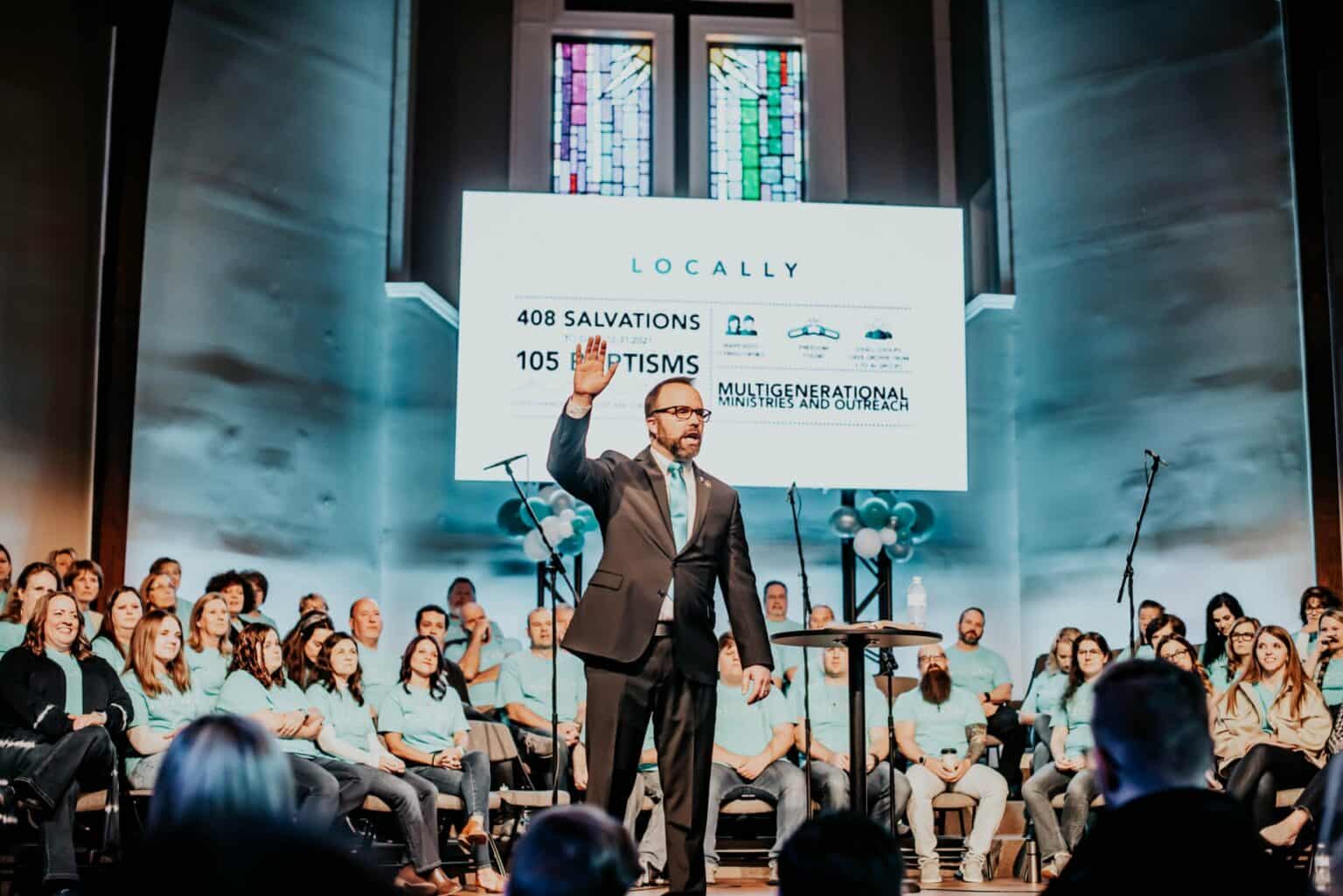Leading & Pastoring 6 Habits of Pastors Who Lead Growing Churches

In 2014, Princeton Church of God located in Princeton, NC was a struggling congregation. The church had an average weekly attendance of 150 and was deeply divided. Deep conflict existed over music styles, chairs vs. pews, and several other items. It was in this environment that God called Matthew Cornett to pastor.
What has happened in the following eight years has truly been a move of God. The church experienced 17% growth during the pandemic year of 2020 followed by 30% in 2021!!! The church now runs over 700 in average weekend attendance. Lives are being changed. And through a partnership with INJOY Stewardship Solutions, Princeton Church recently exceeded its campaign goal by $1.5 million! Our very own Brian Dodd sat down with Pastor Matthew to learn the best leadership practices needed to generate and sustain church growth.
FOR THE WHOLE CONVERSATION, CLICK HERE
What we learn from their time together are six habits of pastors who lead growing churches:
Habit 1: Trust God
Pastor Matthew was not called to be a church planter. Rather, he was called to help recuperate and revitalize a church.
Pastor Matthew said, “Trust the Head, the Cornerstone of the Faith and what He is calling you to do.” Pastors of today’s growing churches know that obedience is more important than systems or the latest trends. He said, “Hear the voice of God and do whatever He tells you to do. And He’ll honor that.”
Habit 2: Build Unity
Pastor Matthew preached out of Numbers in his interview sermon. He fearlessly told the church, “The reason you are here is not your prior pastors. The reason you are here is because of you. It’s time to repent and it’s time to turn to God.” Instead of a negative vote for this pastoral candidate, the entire church went to the altar and repented after the message.
Upon being voted in, Pastor Matthew did not stop there. He continually reinforced what God told him was the church’s core issue. “For a year, every message I preached had a thread of unity built into it.” He stayed on message as God reconciled countless relationships.
Habit 3: Develop A Great Staff
Pastor Matthew acknowledge, “My staff was the reason this was successful.” They freed him up to do what he did best and what God had called him to as the church’s pastor.
Habit 4: Own The Results
As the church’s capital campaign began, a minimum goal was set at $1.5 million with a high goal of $2.2 million. But Matthew was trusting God for audacious things and wanted to exceed any bar set by INJOY Stewardship and their consultant Jeff Shortridge.
He decided to attend 10-20% more one-on-one dinners with high-capacity givers than recommended. In addition, he went to dinners with everyone in the tier just below high-capacity. Pastor Matthew even went to one-on-one dinners with non-givers but those he thought had the potential to play a significant part in what God was doing at Princeton Church.
Pastor Matthew was trusting God for great things but he owned his role in the campaign’s success.
Habit 5: Disciple High-Capacity Leaders
It is one thing to meet with high-capacity leaders. It is another thing completely to cast a compelling vision and call these individuals to sacrificial action. This is where Pastor Matthew excelled.
INJOY Stewardship consultant Jeff Shortridge coached him through the structure and language of these times together. Pastor Matthew would ask his leaders, “What’s your favorite part of the church. What do you love? Why do you come to the church?”
For these meetings to be effective, it required personal growth from Pastor Matthew himself. The advice he now gives pastors is, “Get over guilt. You’re not raising money for you. All you’re doing is asking people if they want to be a part of what God is doing. So get over yourself.”
An additional benefit of these meetings was it honored those in the church who were asked to attend. As a result, it strengthened the relationships between Pastor Matthew and church’s high-capacity leaders.
The strengthening of these relationships also gave Pastor Matthew a unique insight into the minds of high-capacity leaders. He observed, “As pastors, we sometimes accuse leaders of being controlling when all they’re really doing is leading. All they really want to do is be heard. They’ve never been afraid to give me their opinion, but they’ve also never been afraid to say, “I’m not the CEO. You are.’ Let them speak. Just because they disagree with you doesn’t mean they’re not going to back you.”
Habit 6: Stewarding the Pastor’s Time and Calendar
The most valuable component of a capital campaign is the pastor’s calendar and his or her willingness to meet with key leaders. The following is Pastor Matthew’s advice:
-
“Every pastor has different strengths. Use yours where God has strengthened you.”
-
“You’ve got to have very clear communication with your leadership that during this season of growth, I’m going to have to keep my focus primarily on two things – the thing that I’m great at, that one thing, and this campaign.”
-
“Guard our family time. Guard our personal time.”
-
“Pastor, if you’re doing it by yourself, you’re doing it wrong.”
As previously mentioned, the campaign results were incredible! The church received commitments of $3.7 million!!! To God be the glory!!! This was $1.5 million above their goal.
As a pastor, trust God. Build unity. Develop a great staff. Own the results. Disciple high-capacity leaders and steward your time and calendar well. By doing these six things you position the church to potentially experience significant growth as well.
In conclusion, I want to repeat what Pastor Matthew said. Pastor, if you do your upcoming capital campaign alone, you’re doing it wrong. Let INJOY Stewardship help you. Click HERE and start a conversation with one of our ministry consultants today.
More posts about Leading & Pastoring




